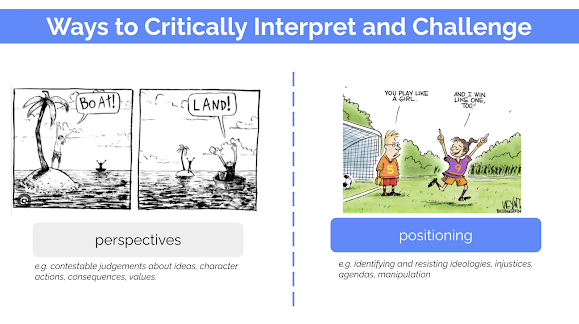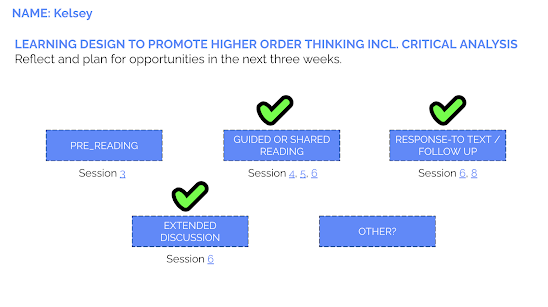What achievement challenge are you considering as an area of focus in 2023 and why? Include in your WHY both evidence and your own passion/expertise
Achievement challenge 3 lifting reading achievement. I believe that reading is key for our students to be able to do well as it opens access to all other areas of the curriculum. My passion is reading for this reason and I believe is one of the reasons that I enjoy teaching it as it is not just closed off to one curriculum area. The data that I have seen so far shows that many of my students have been reading around 10 years and this suggests that they are needing to develop that critical thinking and extended discussion during reading. From previous data I have found that students are struggling to read and comprehend the questions that they are seeing in PAT maths and Star along with reading. It can be seen that they are unable to infer meaning or apply knowledge. I have found that many students do enjoy reading while they are in a guided reading session and that extended discussion and critical thinking can come through. I am trying to build on that while they are completing follow up tasks and working independently. This group of students have started to show an understanding of inferring but are lacking the critical thinking skills to understand the text in greater detail. As a school we have also been talking about the importance of extended discussion and how we can make sure this is happening when the students are not with the teacher. A possible question could be how can I facilitate extended discussion to happen with my students when they are working independently? Another thing that I have been thinking about as I have been looking at my data is the students' understanding of maths terms and vocabulary which could be hindering them from answering questions correctly.
What learnings from the 2017 - 2024 CoL teacher inquiries have informed or inspired your thinking.
Working with other CoL teachers this year and being able to share in the process of what is going on for my inquiry as well as the inquiry of others has been really beneficial this year. I have been extended in my own thinking which has made me think outside the box.
Some key inquiries I have been inspired and interested in have been
Dee Karl 2024 - Bringing real-world texts and experiences into literacy activities. Focusing not just on students reading books but allowing the students to have texts that are meaningful and relevant to their own lives so that they can see themselves in the texts.
Robyn Anderson's inquiry from 2022 about the enjoyment and passion that students have for reading and to take ownership of choosing books to read for enjoyment along with what we are reading and learning about in class.
Clarelle’s inquiry from 2021 where she looked at the critical thinking of students linked in with my 2021 inquiry using vocabulary to strengthen students' knowledge.
How would your work support Manaiakalani pedagogy and kaupapa?
There are many ways that this work would support Manaiakalani pedagogy and kaupapa:
It reflects the value of learn, create and share. It reflects the focus of Manaiakalani schools next year looking into raising reading achievement along with how we can ensure that we are planning for and having extended discussions with the students.
Collaboration with other colleagues as well as students.
Supporting connected and empowered learners.
Which elements of the extensive Manaiakalani research findings inform or challenge you as you think about this?
Manaiakalani observations have shown that extended discussion is an area that could have some development and be seen more in teaching. Manaiakalani research further investigates critical thinking and the use of generic reading tasks in order to focus more time and energy into planning as well being able to hopefully allow for that extended discussion of learners. Being part of Manaiakalani Reading Practice intensive this year I hope to carry on my learnings from this and the research that we have looked at to further strengthen my own teaching as well as aligning with Manaialakani research findings.
How would you like to be supported in 2025 as you undertake this inquiry?
The opportunities for regular discussions with other colleagues around our inquiries and how we can help and guide each other. I have found this really useful this year. Continuing to focus on academic data and research to make changes to my own practice. Along with the support of other teachers as well as the Manaiakalani team.
How would you plan to support your colleagues in your school with THEIR inquiries and/or teaching in the area you are exploring?
Being available for collaboration with others within my school with similar inquiries. Supporting other teachers within my own team with findings from my inquiry to help build on their own inquiries as well as the direction we are going in a team. Supporting my colleagues through the running of workshops, sharing knowledge and offering assistance and ideas where needed. Working collaboratively within my team and other teams in the school. Ensuring that at a team level we are spending time in our team meetings looking at our inquiries and how we can help each other as well as sharing our inquiries so that we can use these within our own classes as well.

.png)

.png)
















.jpeg)










